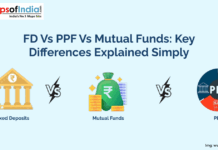People often view startups and small businesses as similar things once an entrepreneur starts his journey into a particular field. Undoubtedly, the term ‘startup’ has exponentially grown these days with the people showcasing interest in it. It certainly has some things in common but has key differences. Let us try to understand the article.
What is a startup?
A young company aimed to develop a unique product or service in the initial stage of its operations. It provides a product that is not available in the market, and making it in use adds to a newer outlook in the market.
What is a small business?
Small business refers to limited company size and is relatively low in capital investment, sales volume, and labour to identify profit stabilisation. It has a vital role in the country’s economic development, and these industries invest in a limited amount with not above one crore. Examples of small-scale enterprises are toothpicks, pens, paper, bakeries, candles, local chocolate, etc. In this, quality could matter more than quantity; as Jess Campbell states, “Bringing great people onto your team is about demonstrating that size doesn’t matter – people do.”
Key differences between a startup and small businesses
- Innovation: Startups are designed to produce innovation with a new feature or with some enhancement to a product in the market. They are set up for accelerated and flawless growth to lure more investors and funding rounds at different levels of development. At the same time, small businesses also focus on accelerated and ideal growth differently, and they concentrate on enabling consistent revenue by keeping reduced costs.
- Funding: Venture capital organisations often back startups, and finance requires entrepreneurs to state the growth indications and showcase how the planned investment will foster the startup’s value. When sharing the ideas with venture-supported companies, one must provide a business idea that showcases how they can attain growth and boost the startup’s value in the market. In contrast, small businesses don’t connect with giant venture capitalists whose purpose is to raise investment wealth without demonstrating high revenue projections. Consequently, a large chunk of the funding comes from banks or different lenders/small company loans.
- Risk: There is more risk in startups than small businesses as it requires much time and endeavours for a new product, while small companies don’t look for expansion and innovation. They try their existing approach, and often it becomes challenging to deal with it.
- Growth rate: Startups are on the path to flourish after some years of their existence. Success is measured over time, whereas small businesses grow rapidly but only expand if the company reaps the rewards.
- Profit: It takes months and years for a startup to grow with many consumers who can benefit from its product. Suppose it is achieved, the startup flourishes while small businesses emphasise making revenue and profit from day one of the organisation.





